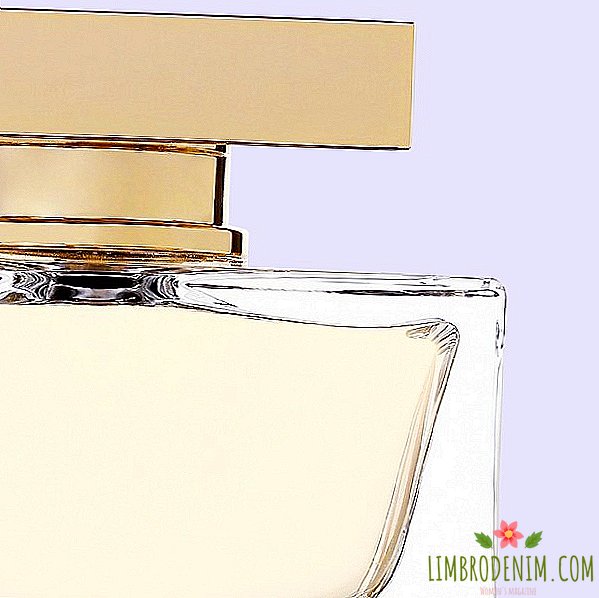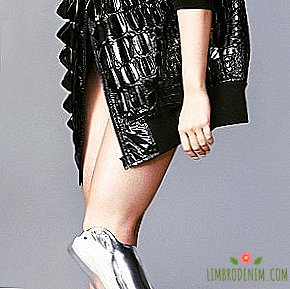The most common misconceptions about makeup

Masha Vorslav
Recently, we talked a lot about make-up: about how to approach unusual cosmetics, about multifunctional products and people who paint the way they like it. It seems to us that after such a powerful entry, stopping from experiments with tubes can only be ignorance of basic techniques that facilitate the work with cosmetics. Below we have tried to dispel famous myths and summarize the tips that we learned from communicating with makeup artists and our own experience.
Makeup spoils the skin

Surprisingly, we sometimes still hear this stereotype from the lips of quite progressive girls. Cosmetics can harm the skin if it is used incorrectly (for example, to keep a clay mask on the face longer than it should be, to choose products that are not suitable for the skin type, or not to wash them off the face) and if it contains components for which a particular person develops allergic reaction. Yes, an inappropriate tonal can clog pores or emphasize desquamation, but lips do not fade from lipstick, eyelashes do not fall out from mascara, and do not suck blush out of vital juices.
Means of different textures are well combined

Not a mistake, but a technique that can ruin the lives of many who are just learning to be beautiful. The fact is that the powdery agents are frankly poorly distributed over the cream even by the best brushes, so that excellent blush can lie on an equally great tonal stained and wipe off only with oil. To avoid unpleasant surprises, we advise either to pick up the same texture, or lay a thin layer of transparent powder between liquid tonal and dry blushes.
Natural brushes are always better than synthetic

In brushes, not only their shape is important, but also the material. Synthetic can be painted all - artificial pile (for example, in MUFE, the entire line of it) does not cause allergies, in contrast to the natural. In addition, cream products can be typed and smeared only with artificial nap, but natural is perfect for shading. It fuzzes heavily, so that completely new brushes without protruding hairs may come up for drawing clear lines, but it is better to choose synthetic ones. You can determine the type of fiber by eye (artificial smooth, direct and shiny), but it is better to consult a consultant.
Individual brushes can not wash

Ideally, the brush should be washed after each use, even if they are painted by one person. If you work only with your face, those that deal with powdery textures can be washed as they are polluted (although we recommend having several identical brushes so that the funds do not mix with each other). Sponge and brushes with which you apply tonal resources should be washed at least once a week; if you distribute them with your hands, you must first wash your hands (surprisingly, they all learned not to climb into the eyes with dirty hands, and they consider touching the skin to be acceptable). In any case, we denote that washing means not to rinse with plain or micellar water, but to clean the pigment with at least shampoo or, better, with a specialized agent.
Fingers cosmetics can not be applied

Many makeup artists apply creams (tonal and not), shadows, blush and pigments with their fingers. Hands are the same tool as brushes and sponges, and some means can be applied only with high quality. For example, it is best to warm up the silicone-coated talons between your palms, and then apply the patting movements on your face - from the warmth of your hands, the product warms up and lays much better. There is nothing sacrilegious in the reluctance to use a brush, so the only thing to be remembered is hygiene.
The more layers, the better the makeup.

The more makeup on the face, the more it is deformed during the day. Yes, we advised to wrap the skin tightly with a primer, tonal and cream blush in the cold season, but to wear such a layer cake on the face to non-zero temperatures makes no sense. If the skin has no problems, powder and tinting cream will do everything that is needed, and will not obscure its texture. Moisturizing bases are needed if there are flakings, and smoothing pores - only when the natural look of the latter really bothers you. The same applies to primers for lipsticks, mascara, powder, highlighters, etc. The main thing in makeup (as in many other things, however) is awareness, that is, the ability to explain why you need to smear a particular jar on yourself.
Suite is always better

In the case of cosmetics, “more expensive” also does not mean “better.” Of course, there is a certain threshold that manufacturers of cheap cosmetics cannot overstep - some ingredients are not available to them. Nevertheless, simple moisturizers are excellent at pharmacy brands, specialized care (for example, wrinkles) should be found not in a network store, but under the guidance of a doctor (popular brands use an insufficient number of active ingredients that could solve your problem), but about decorative cosmetics we have said. Of course, we do not deny the effectiveness of expensive funds only because of the price, but we believe that the mass market often undeservedly blaspheme.
Photo: cover image via Shutterstock




